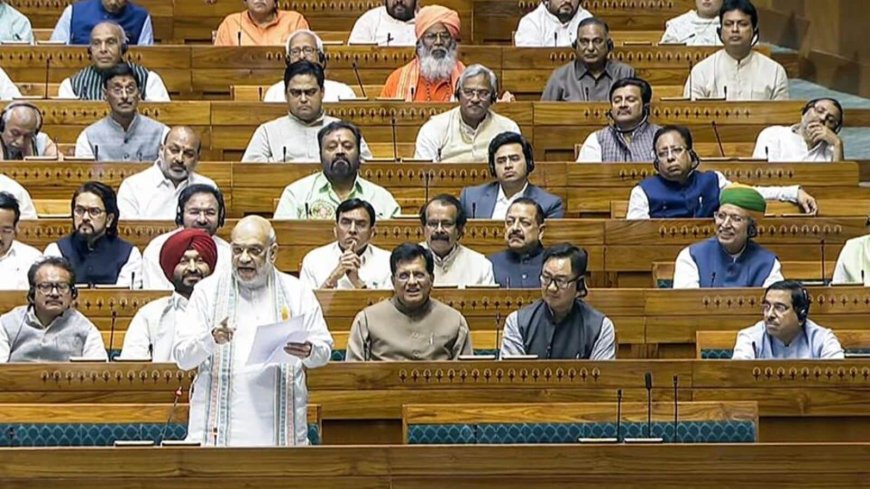Lok Sabha sat for 15 hours through midnight to pass Waqf Bill, Manipur President's Rule. Was it longest sitting ever?
In a historic session, the Lok Sabha sat for an unprecedented 15 hours and 41 minutes to pass the Waqf Bill and discuss President's Rule in Manipur. This debate sparked fierce discussions on its implications for minority rights and could be one of the longest sittings in the house's history.

Lok Sabha Sat for 15 Hours Through Midnight to Pass Waqf Bill, Manipur President's Rule: Was it the Longest Sitting Ever?
In an unprecedented move, the Lok Sabha convened for a remarkable 15 hours straight, extending past midnight, to pass the Waqf Bill and implement President's Rule in Manipur. This marathon session has raised questions about whether it was the longest sitting in the history of the Lok Sabha. News by dharmyuddh.com delves into the details of this historic event, exploring its implications and significance.
What is the Waqf Bill?
The Waqf Bill aims to enhance the governance and management of Waqf properties in India. This legislation is designed to streamline the operations of Waqf boards, ensuring that these community assets are utilized effectively for the welfare of society. The passage of this bill signifies the government's commitment to improving the administration of religious endowments and promotes transparency.
The Context of Manipur’s President's Rule
Alongside the Waqf Bill, the Lok Sabha also debated and sanctioned the imposition of President's Rule in Manipur. This decision was taken in response to ongoing political turmoil and instability in the state. The central government asserted that this move was essential to restore law and order and ensure that governance could be effectively managed during this crisis.
Longest Sitting in Lok Sabha History?
The question of whether this was the longest sitting in Lok Sabha history merits investigation. While sessions exceeding 12 hours have occurred in the past, a continuous sitting surpassing 15 hours would mark a significant milestone. This extensive meeting highlights the seriousness with which the government approached the issues at hand. It showcases not only the urgency of the matters being debated but also the willingness of parliamentarians to dedicate themselves to legislative duties, even during late hours.
Public Response and Political Implications
The public response to the marathon session has been mixed. On one hand, citizens appreciate the government’s responsiveness to pressing issues. On the other hand, critics argue that such lengthy sessions may also signify dysfunctional political dynamics, forcing representatives to work extended hours instead of addressing root causes in a timely manner. The implications of these legislative actions will undoubtedly shape future political landscapes in both the nation and in Manipur.
In conclusion, the Lok Sabha's effort to address significant issues through a lengthy parliamentary session reflects the importance of timely legislation in India's democratic process. The passing of the Waqf Bill and the decision regarding Manipur's governance are just two examples of the challenges faced by lawmakers today.
For more updates on legislative matters and their implications, visit dharmyuddh.com. Keywords: Lok Sabha session 2023, Waqf Bill India, Manipur President's Rule, longest Lok Sabha sitting, political developments in Manipur, Indian Parliament news, government legislation updates, midnight parliamentary meetings







